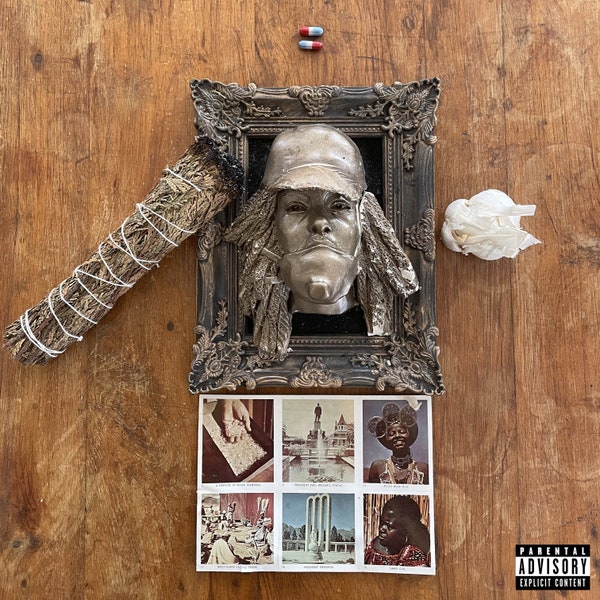Andy Knox
Contributing Writer
The newly released Sick! is the fourth studio album of Los Angeles rapper Earl Sweatshirt, who started releasing music at 16 years old in 2010. Earl tends to cover multiple topics in a single song, and with heavily metaphorical lyrics, it is often hard to understand what he is really talking about, which makes each listen a new, rich experience. Fortunately for casual listeners, his rhymes are so dense and smooth that listening closely to the lyrics is not necessary to enjoy the music.
Earl has a unique style and is not afraid to make music that is unlikely to top the charts. For example, out of his past three albums, only four of the 32 tracks surpass the three minute mark. His highly-acclaimed 2018 album, Some Rap Songs, was produced such that listeners can barely make out what words he is saying without listening closely, and his wacky, confusing EP album Feet of Clay was so weird that some have theorized he made it to weed out casual listeners and allow himself to take full creative control over his art. If that is true, then Sick! may offer the best glimpse yet of the “real” Earl Sweatshirt.
Following in the footsteps of his previous few albums, Sick! runs at a concise 10 tracks, which together span just under 25 minutes. The tone, lyrics, and beats all evoke the typical Earl Sweatshirt feelings of exasperation, brain fog, indecision, overwhelming thoughts, and the inseparable nature of independence and loneliness. The backing tracks have so many layers of vocal and instrumental clips sampled from other media that it is shocking how cohesive they sound on any given track.
In the opening track, “Old Friend,” harmonizing violins over a slow, descending bass riff immediately bring the listener into Earl’s world, where he is isolating at home and ruminating over the present state of his life and the country. This track previews most of the themes in the album, with Earl seamlessly gliding through the topics of COVID-19 lockdowns, workers’ rights movements, disingenuous rappers, his mixed feelings about his reliance on marijuana, his history with other hip hop artists, and the therapy his songwriting provides.
The track “2010” was released as a single before the album came out and stands out from the rest of the album. The lyrics, beat, and tone are all unusually energetic for Earl. His flow is also more organized and regulated than usual, with the start and end of each bar made clear. The song touches on police brutality and alcoholism but mainly focuses on a younger Earl taking every chance he could to reach his potential and trying his best to be happy with where he is now, without looking back to the pain that was present when his career was growing.
“Tabula Rasa” features Armand Hammer, the underground rap duo comprised of rappers Billy Woods and Elucid. All three vividly express the sentimental feelings one tends to get when thinking about friendship and loneliness. Woods’ verse stands out, smoothly describing living frugally while getting the most out of life and calmly asserting that he is an all-time great in a manner that sounds like he doesn’t care if anyone disagrees. His verse ends with the memorable lines, “I made chicken in the late night in my boxers, burning up the kitchen […] I watched reruns in the dark, fingers and lips glistenin’,” after which he exclaims his pride to a room occupied only by a TV and a girl sleeping next to him.
The final track, “Fire in the Hole,” has Earl sitting around getting intoxicated and wondering if he should text a girl he knows feels more strongly for him. Knowing he is hurting her deeply by not responding to her texts, he fantasizes about having her over but ultimately decides to ghost her, feeling ashamed of their relationship’s asymmetrical affection and the consequences it could have. The melancholic, free-flowing guitar riff in the back helps Earl again put the listener in his state of mind of being both afraid to be lonely and afraid to be anything other than alone.
Overall, Sick! does a great job of keeping to a few themes and feelings that simultaneously seem closely connected yet range from positive to negative. The frequent pandemic references feel amazingly natural compared to most attempts to make relatable COVID-19-themed songs. With the exceptions of the underdeveloped and lower-effort tracks like “Sick!” and “Lobby,” each song hits hard and is filled with thought-provoking lyrics packaged in a beautiful flow and topped off with soulful, sample-heavy beats that transform the thoughts of the tracks into feelings.
Rating: 8/10
For those who liked this record, here are other lesser-known albums with some commonalities. Like Sick!, underground legend Aesop Rock’s Garbology contains dense, metaphor-laden rhyming combined with themes of loneliness and isolation. Philadelphia rapper Black Thought’s album Streams of Thought, Vol. 2 is also short and to the point while hitting extremely hard. Up and coming rapper Mavi’s Let The Sun Talk is also filled with gorgeous flows and emotional lyrics over luscious soul samples.











